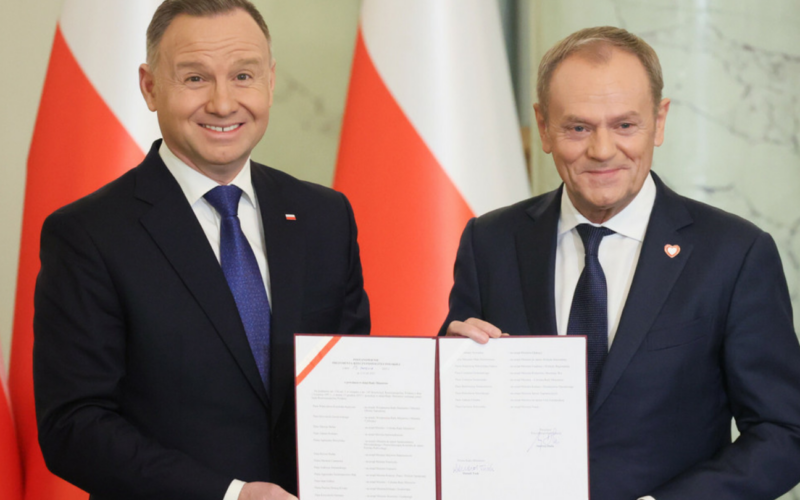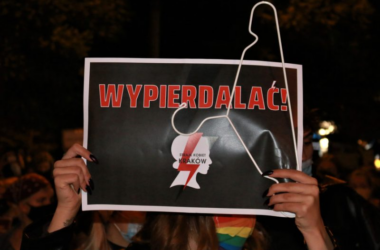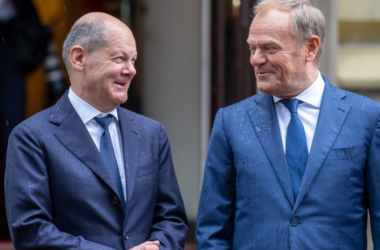Poland’s Newly Appointed Prime Minister, Donald Tusk, Urges European Union for Release of Nearly €60 Billion in Frozen Funds
In a significant move that underscores Poland’s commitment to economic growth and stability, the country’s recently appointed Prime Minister, Donald Tusk, has formally approached the European Union with a request to release approximately €60 billion ($65.9 billion) in funds that have been blocked.
Tusk, a seasoned political figure known for his strategic acumen, wasted no time in addressing a critical financial issue facing Poland. The substantial sum in question, earmarked for various projects and initiatives crucial to the nation’s development, has been held up for reasons that Tusk aims to address through diplomatic channels.
The appeal comes at a pivotal moment for Poland, as it seeks to strengthen its economic position within the European Union. Tusk, a prominent leader with a track record of successful negotiations, is leveraging his diplomatic skills to navigate through the complexities surrounding the frozen funds.
The request for the release of these funds is not merely a financial matter; it carries broader implications for Poland’s ability to implement key policies and initiatives. Tusk’s administration has outlined ambitious plans for infrastructure development, social programs, and economic reforms, all of which hinge on securing the necessary financial support from the European Union.
Poland’s economic landscape has evolved significantly in recent years, and Tusk’s government is keen on leveraging these funds to address pressing issues such as modernizing infrastructure, fostering innovation, and promoting sustainable development. Unlocking the €60 billion in blocked funds would provide a substantial boost to these endeavors and contribute to Poland’s overall prosperity.
As the news of Prime Minister Tusk’s appeal reverberates through European diplomatic circles, it underscores the importance of effective collaboration and dialogue within the European Union. Poland’s request is not only an economic plea but also a testament to the interconnectedness of member states and the shared responsibility for fostering mutual growth and stability.
In the spirit of transparency and acknowledgment of the original source, this article draws upon information from reliable sources reporting on Prime Minister Donald Tusk’s request for the release of nearly €60 billion in blocked funds. The details provided here aim to offer a comprehensive overview of the situation, highlighting the significance of this development in shaping Poland’s economic trajectory within the European Union.
In a significant move that underscores Poland’s commitment to economic growth and stability, the country’s recently appointed Prime Minister, Donald Tusk, has formally approached the European Union with a request to release approximately €60 billion ($65.9 billion) in funds that have been blocked.
Tusk, a seasoned political figure known for his strategic acumen, wasted no time in addressing a critical financial issue facing Poland. The substantial sum in question, earmarked for various projects and initiatives crucial to the nation’s development, has been held up for reasons that Tusk aims to address through diplomatic channels.
The appeal comes at a pivotal moment for Poland, as it seeks to strengthen its economic position within the European Union. Tusk, a prominent leader with a track record of successful negotiations, is leveraging his diplomatic skills to navigate through the complexities surrounding the frozen funds.
The request for the release of these funds is not merely a financial matter; it carries broader implications for Poland’s ability to implement key policies and initiatives. Tusk’s administration has outlined ambitious plans for infrastructure development, social programs, and economic reforms, all of which hinge on securing the necessary financial support from the European Union.
Poland’s economic landscape has evolved significantly in recent years, and Tusk’s government is keen on leveraging these funds to address pressing issues such as modernizing infrastructure, fostering innovation, and promoting sustainable development. Unlocking the €60 billion in blocked funds would provide a substantial boost to these endeavors and contribute to Poland’s overall prosperity.
As the news of Prime Minister Tusk’s appeal reverberates through European diplomatic circles, it underscores the importance of effective collaboration and dialogue within the European Union. Poland’s request is not only an economic plea but also a testament to the interconnectedness of member states and the shared responsibility for fostering mutual growth and stability.
In the spirit of transparency and acknowledgment of the original source, this article draws upon information from reliable sources reporting on Prime Minister Donald Tusk’s request for the release of nearly €60 billion in blocked funds. The details provided here aim to offer a comprehensive overview of the situation, highlighting the significance of this development in shaping Poland’s economic trajectory within the European Union.








